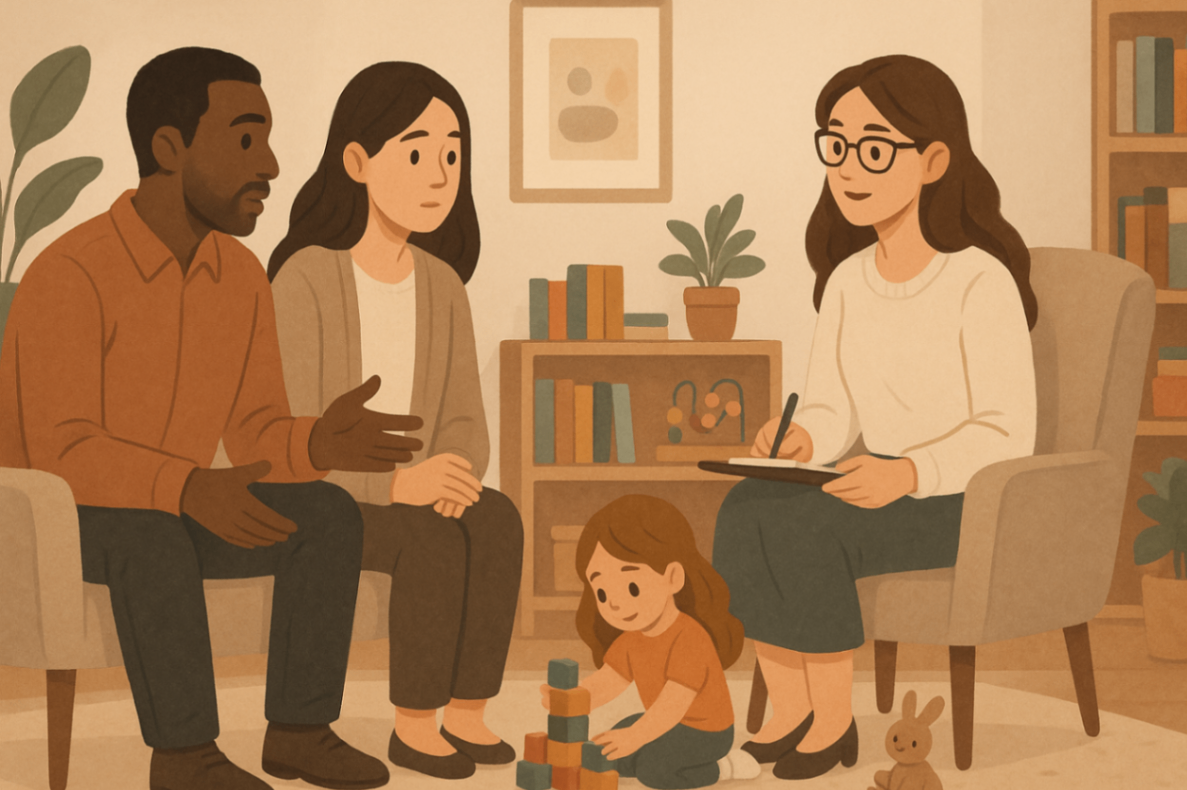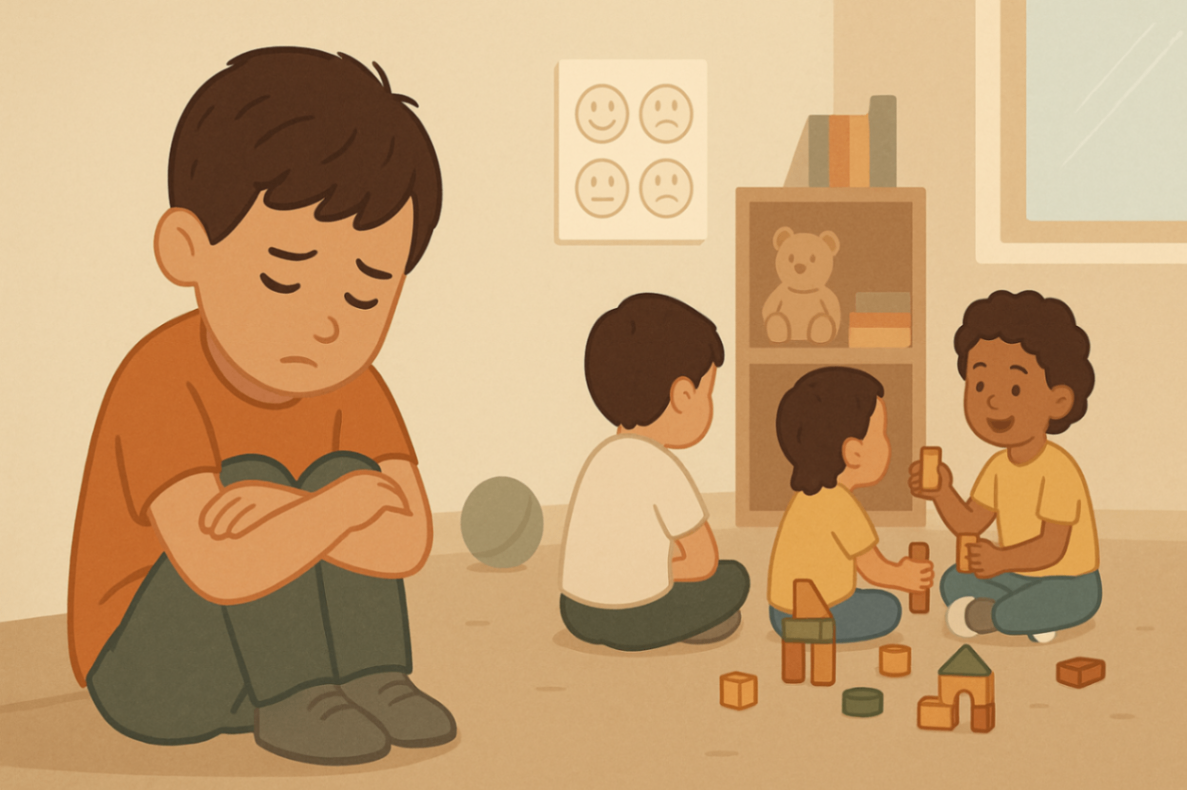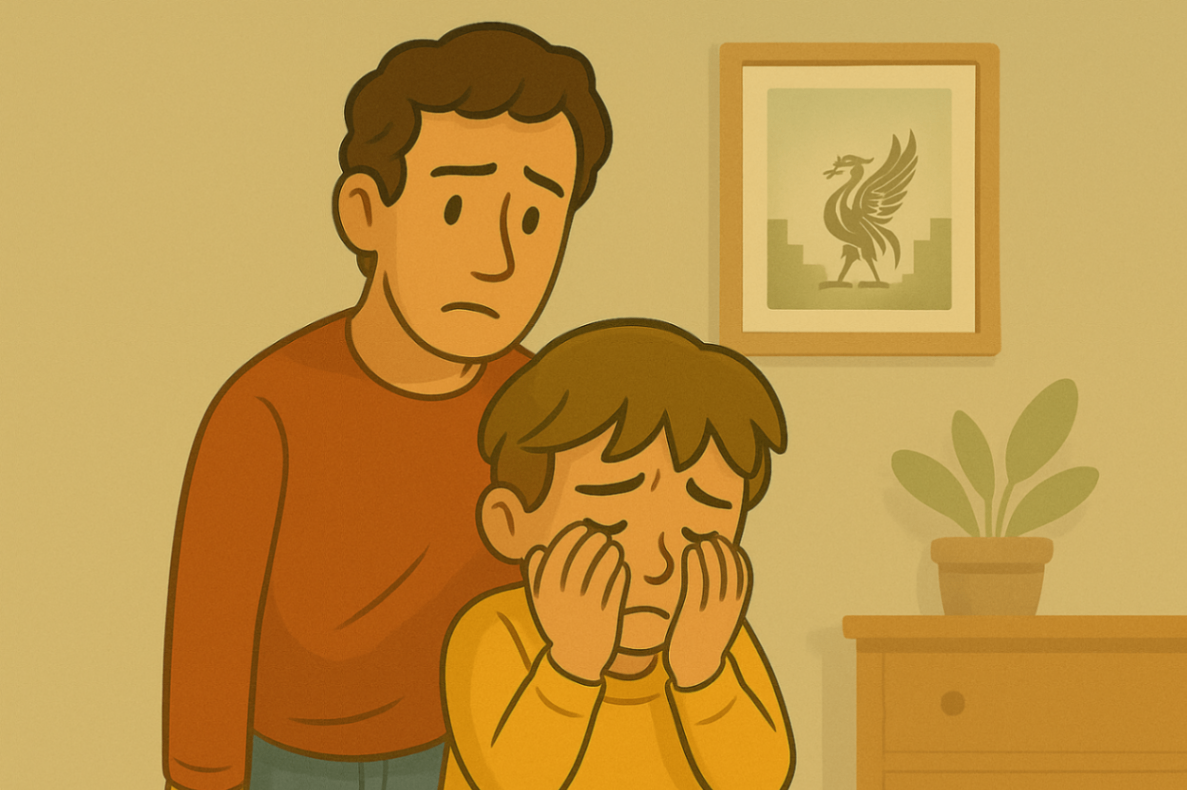
identifying signs for specialised behaviour support in kids liverpool
19 June, 2025

Key Highlights
-
Positive Behaviour Support (PBS) plans help children overcome challenging behaviour by identifying their individual needs and strengths.
-
Behaviours of concern can include frequent tantrums, emotional outbursts, and difficulty following instructions.
-
The National Disability Insurance Scheme (NDIS) provides specialist behaviour support services for families in Liverpool.
-
Families and educators play critical roles in implementing proactive strategies outlined in PBS plans.
-
Behaviour support practitioners collaborate to create evidence-based, individualised behaviour support plans that promote positive outcomes.
-
Ethical guidelines, such as reducing restrictive practices, ensure safe and meaningful support for children.
Introduction
Recognising when your child needs extra help can be challenging. Early signs of difficult behaviour, like tantrums or resistance to rules, are crucial to observe. Positive behaviour support focuses on your child's needs and offers tailored assistance. Specialist behaviour support under NDIS provides families with effective strategies to address these challenges, enhancing both the child's growth and well-being. With the right support, families can help their children lead happy, fulfilling lives.
Recognising Common Behavioural Challenges in Children
 Children often show how they feel by what they do. Some actions can be a cause for worry. Things like being aggressive or very defiant are signs a child may need behaviour support. For kids with autism, these behaviour issues can happen often. This can make it hard for them to connect or talk with others.
Children often show how they feel by what they do. Some actions can be a cause for worry. Things like being aggressive or very defiant are signs a child may need behaviour support. For kids with autism, these behaviour issues can happen often. This can make it hard for them to connect or talk with others.
Many times, these behaviours may not be seen right away, especially if they come and go. Still, knowing what these signs look like helps parents understand what is going on. Parents can then take steps to get professional behaviour support as soon as possible.
Frequent Tantrums and Emotional Outbursts
Tantrums and emotional outbursts are common in childhood, but frequent or severe episodes may warrant professional help. Persistent challenging behaviour can signal mental health issues or adaptation difficulties. Parents might notice their child getting upset over minor changes, complicating emotional regulation. Consistent behavioural support is vital for healthy development. Strategies from Positive Behaviour Support plans can help identify triggers for these outbursts. Engaging trained professionals equips parents with tools to redirect behaviour positively. Recognising signs like prolonged tantrums is essential for creating a supportive environment. Effective behaviour support helps children manage emotions and embrace positive change, benefiting both them and their families.
Persistent Difficulty Following Instructions
Difficulty following instructions can impede a child's daily activities. Many may misinterpret struggles as bad behaviour, but these often arise from insufficient skills or emotional readiness. Identifying underlying causes—like autism or overly complex tasks—is essential. Parents and teachers should reflect on whether a child's behaviour is age-appropriate or requires extra support. Specialists can simplify instructions and customise assistance, fostering problem-solving skills and independence over time.
When Typical Behaviours Become Concerning
 All kids show some behaviours of concern as they grow, but sometimes these behaviours get bigger and need help from a specialist. For example, things like strong aggression or staying away from people might mean the child has needs that behaviour support can help with. A specialist in behaviour knows how to find out what is really going on.
All kids show some behaviours of concern as they grow, but sometimes these behaviours get bigger and need help from a specialist. For example, things like strong aggression or staying away from people might mean the child has needs that behaviour support can help with. A specialist in behaviour knows how to find out what is really going on.
Restrictive practices, like putting a child alone because of their actions, are not the answer. Specialist behaviour support helps children find different ways to handle things. The aim is to cut down on the need for restrictive practices over time. When you spot these signs early, it helps to start the right intervention and support the child’s positive growth.
How Positive Behaviour Support (PBS) Plans Help Kids
Implementing positive behaviour support (PBS) plans helps children grow and succeed. PBS looks at each child’s needs and behaviours of concern, using proactive strategies to support them. This approach is based on evidence and works to give the child a better quality of life. It also focuses on teaching new skills that help the child have a more meaningful life.
Behaviour support practitioners create these plans to fit the child’s unique situation and preferences. By doing this, PBS gives children a chance to show positive behaviour in their environment. Positive behaviour support also helps improve their mental health and lessens the need for restrictive practices.
Key Components of an Effective PBS Plan
An effective PBS plan contains proactive strategies designed to align with a child’s specific needs. It includes interventions targeting behaviours while fostering positive alternatives. Below is a table summarising key elements:
|
Component |
Details |
|---|---|
|
Proactive Strategies |
Preparing environments to reduce triggers for challenging behaviours. |
|
Collaboration |
Input from families, educators, and practitioners ensures personalised plans. |
|
Monitoring and Adjustments |
Ongoing evaluation to refine strategies for maximum effectiveness. |
These components help identify behavioural patterns and develop responses that are supportive rather than restrictive. With guidance from behaviour support practitioners, these plans aim to create safe, enriching environments that allow kids to thrive socially and emotionally.
The Role of Families and Educators in PBS Implementation
Families and educators play a big part in putting PBS plans into action. When they take part, these ideas can be used in the day-to-day life of the child.
- Families share details about what happens at home, so practitioners can make plans that fit well.
- Educators use PBS in classrooms to help students learn and to stop problems before they get big.
- There are professional development opportunities for families and teachers to help them get better at these practices. Some Liverpool-based providers like Allied Health Association and Everyday Independence also offer school-based PBS support, helping bridge the gap between clinical recommendations and real-life environments.
- Supervision from practitioners gives families and educators the know-how and backing they need to do their jobs well.
All these things help take PBS from just a plan to something that works in real life for the good of the child.
Conclusion
Knowing when your child might need a Positive Behaviour Support Plan is very important for their growth and well-being. You should look for common signs like many tantrums, a lot of emotional outbursts, and when they often have a hard time following instructions. By seeing these signs, you can start helping them early. If you learn how behaviour support works, and what a PBS plan is made of, you will be better prepared to speak up for your child. You are not alone in this, as families and teachers both have big parts to play.
Frequently Asked Questions
How does accessing behaviour support through the NDIS work in Australia?
Getting behaviour help with NDIS begins when families or clinicians make a referral to a registered group. These groups have behaviour support workers who give help made for each person's needs.
What professionals are involved in developing a PBS plan?
Behaviour support practitioners work together with clinicians and clinical support services to make PBS plans. Supervision makes sure that all strategies are ethical. It also checks that these ideas use evidence and fit the person's needs well.
Can PBS plans be tailored to my child’s specific needs?
Yes, PBS plans are made to meet each person's unique needs. These plans look at the way someone acts to find patterns. Then, new skills are taught to help them. Practitioners use the right support to help with tough behaviours. This way, PBS can help people in the best way that fits them.
.svg)

















